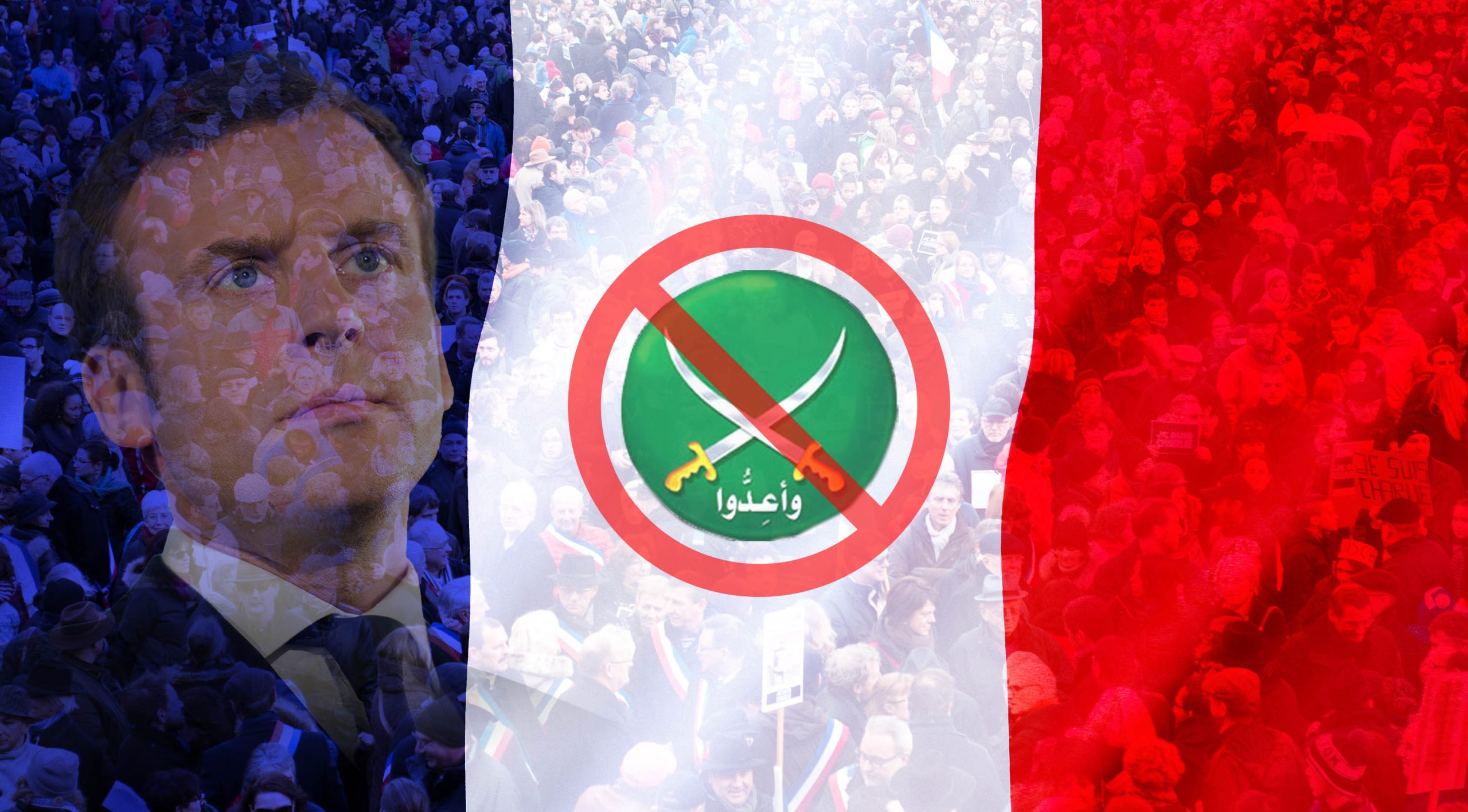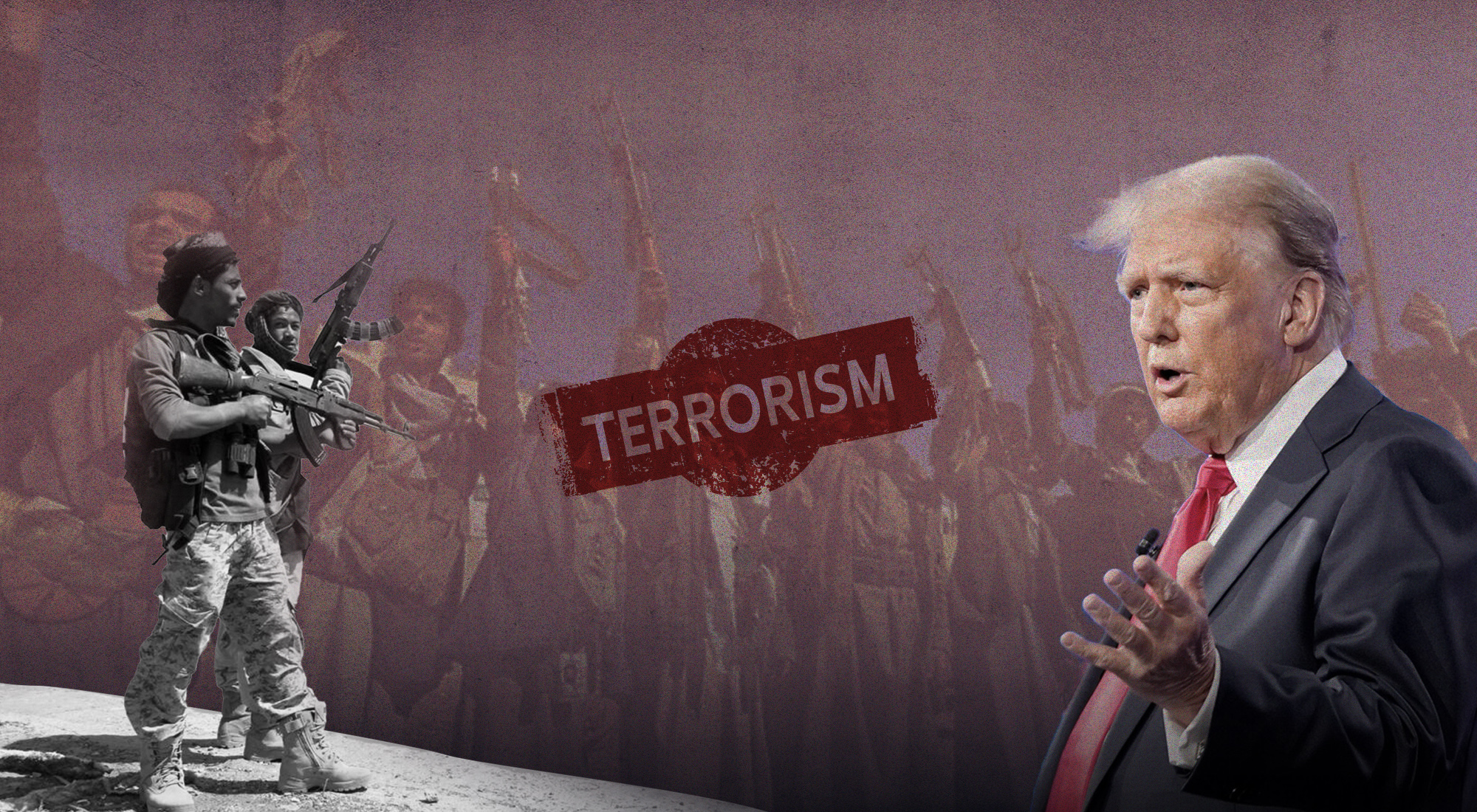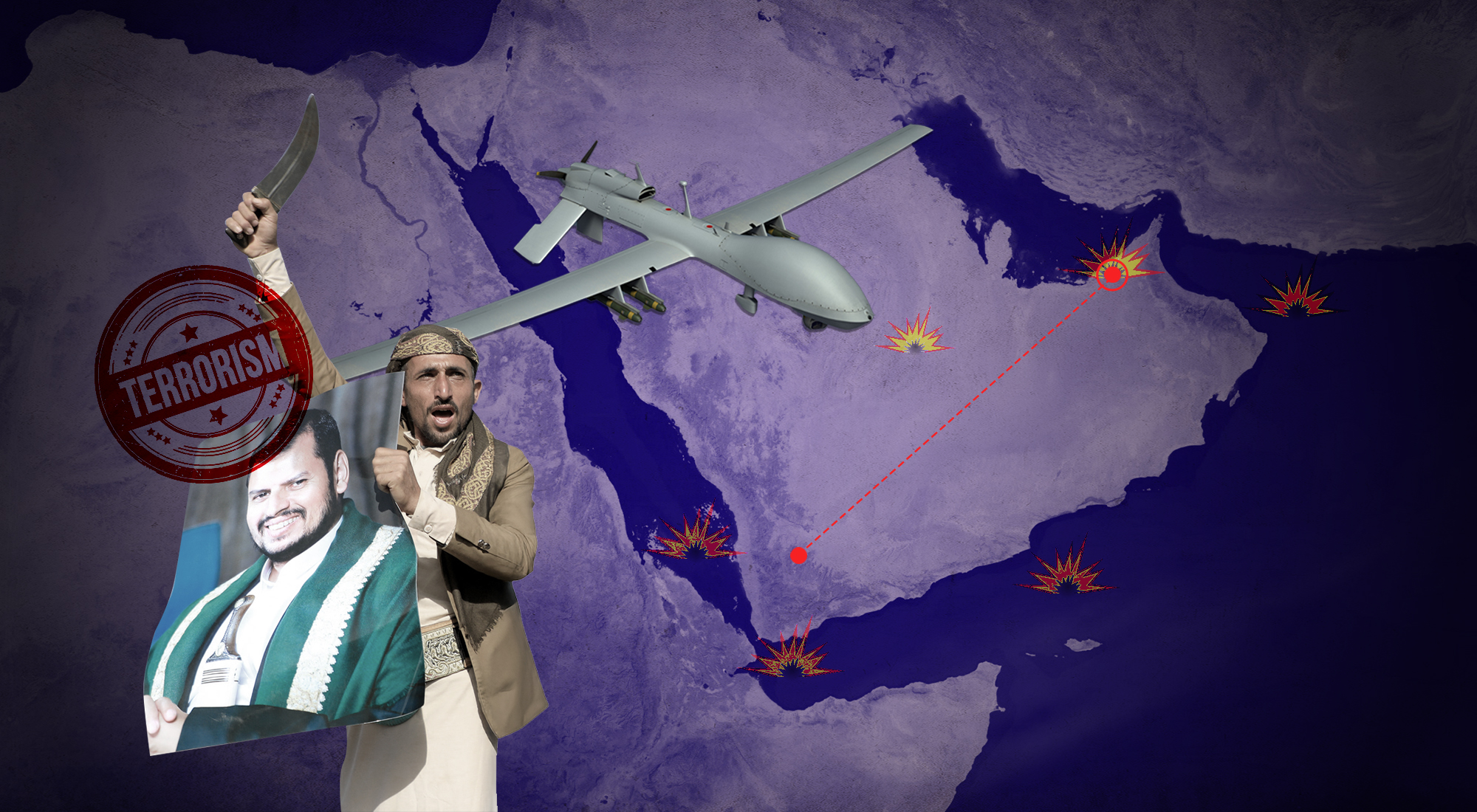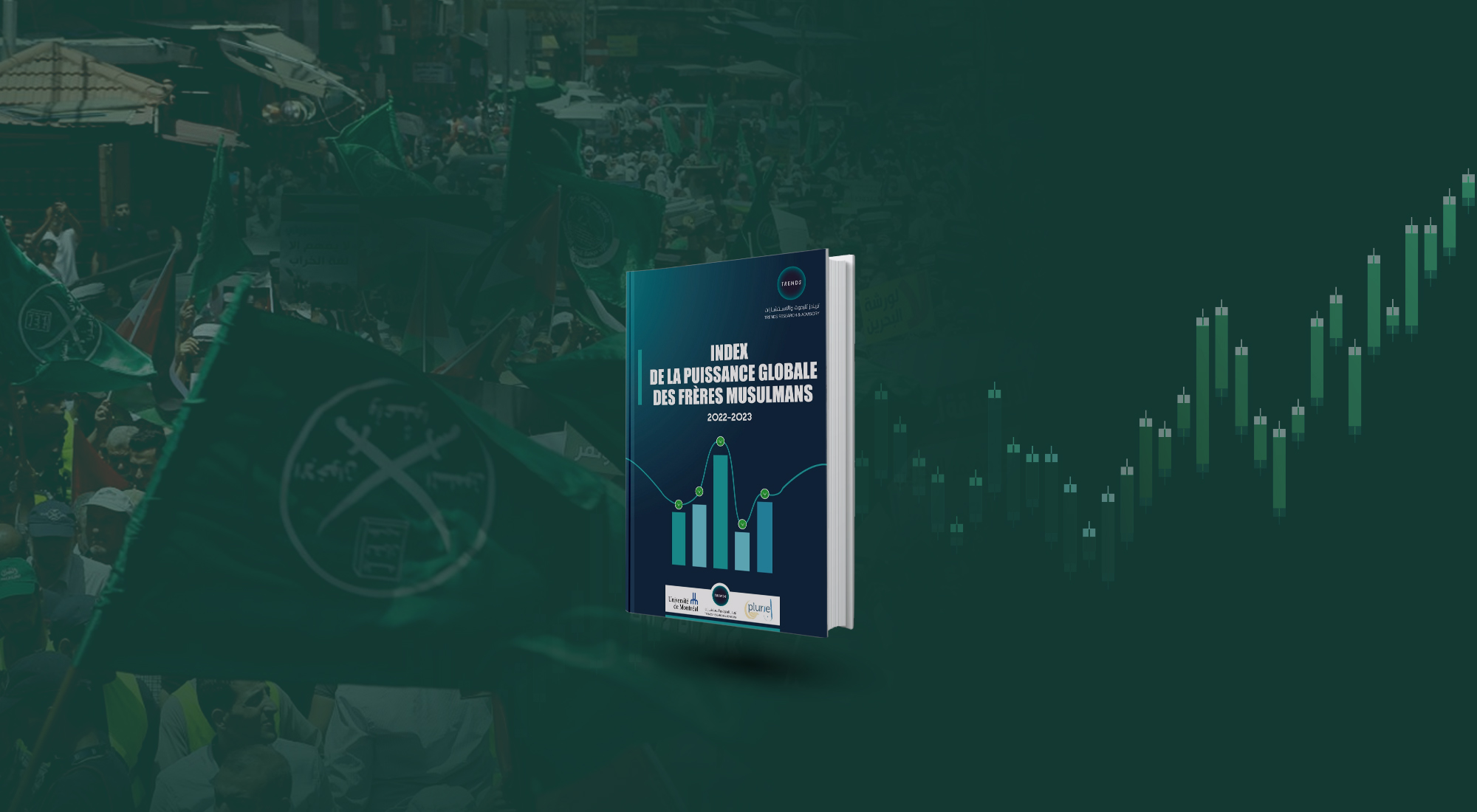On October 2, 2020, French President Emmanuel Macron delivered a lengthy speech on Muslims and political Islam in France. His remark that “Islam is experiencing a crisis today all over the world” stirred a major controversy.[1] The statement implied a blending of the faith with the various groups exploiting and misinterpreting Islam and distorting its image.
However, a reading of the entire speech reveals what can be described as a “French uprising” against the political Islamist groups who exploit France’s Muslim situation. They attempt to create a “parallel state” to be an alternative to the French state with all its secular Western values. These groups provoke Muslim communities against the French authorities and sow the seeds of hatred against France.
Macron emphasized an urgent need to confront what he described as “Islamic Isolationism” fed by these groups. He called for confronting these groups’ designs to establish a “parallel system” inside France, which rejects the republic’s values and incites people against the secular state. The acts of these groups – with the Muslim Brotherhood at the top of the list – proved that their primary objective is to establish a parallel state. These groups expect the parallel state to be loyal to them to pave the way for full control and power capture. The plot is designed to realize the dream of a so-called transnational “Caliphate.”
An e-symposium organized by TRENDS Research & Advisory – Muslim Brotherhood and Parallel State: Directing Struggle against Nation-State on October 20 – shed light on this agenda. The experts who participated in that symposium – including French researchers and academics – reiterated that the Muslim Brotherhood’s vision to establish a parallel state threatens democratic values of tolerance and coexistence in Europe.[2]
The idea behind Macron’s speech was not to suppress Muslim communities, as the sympathizers and affiliates of the Muslim Brotherhood, have tried to interpret. It was meant to diagnose the problem of Muslim communities in France and the West. The problem lies with the negative fallout of these groups’ acts, especially organizations like the Muslim Brotherhood.[3] Their misguided actions further isolate Muslim communities and prevent their integration into French society. They sow seeds of hatred by calling the host society an infidel and hoping to establish a parallel political system designed to topple the existing one.
Macron did not deny the French authorities’ responsibility for pushing Muslim communities to live in isolated residential complexes, described as “ghettos”, and making them easy prey for extremist religious groups. Macron said that France gathered residents based on their origins and did not work to achieve enough assimilation. “We did not work enough to enable them to rise in the socio-economic hierarchy. He also acknowledged that these groups “built their project based on our negligence and failure.”[4]
The French President announced a set of measures to overcome the current situation. He ordered forcing of aid-seeking organizations to sign a “Secularism Charter.” He imposed strict supervision of private religious schools, which work under these religious groups’ guidance. Macron also ordered strictly curtailing of homeschooling and teaching of the Arabic language in schools. The measures intended to inculcate the right values incited political Islamist groups’ concerns, especially the Muslim Brotherhood, which does not want any supervision of their activities.
Probably a segment of Macron’s speech, which incited criticism from even moderate and official religious institutions in the Islamic world,[5] was about his reference to “the crisis of the Islamic faith today.” These critics argued that Macron wrongly mixed Islam as a religion, which teaches noble values and peace, with the extremist elements who exploit the faith for their vested interests. Yet, even this criticism suggests ignorance related to what Macron said in the same speech. The crisis has been fueled by militant fundamentalists and the political projects being pursued by them.[6]
In a statement issued on October 25, 2020, the French Ministry of Foreign Affairs assured that the proposed bill against radical Islam and the President’s statements aim only to fight what it described as “the radical Islam.” The ministry said that these efforts would be made “in cooperation with the French Muslims, who form an inseparable part of the French Republic’s society and history.”[7]
Nevertheless, Macron should have chosen his words more carefully. He should distinguish between Islam as a peaceful religion and the vicious organizations that do business in Islam’s name. These organizations succeeded in exploiting Macron’s statements to launch a ferocious counterattack through its social media platforms. They accused Macron of being anti-Islam and not just being hostile to these groups.
The brutal killing of the French history teacher, Samuel Paty, by an extremist Chechen young man further inflamed passions. The crime was followed by the redistribution of defamatory images of Prophet Mohammed on French government buildings. This development was further exploited by the extremist groups and the forces who support them. The government of Turkey tried to exploit the issue to restore the diminishing image of its empire. Turkey attempted to divert the campaign calling for a boycott of Turkish products to ban French products. The country tried its best to benefit from the escalating anger within the Arab and Islamic world’s public opinion because of the redistribution of the offensive photos of the prophet.
In his October 2 speech, Macron considered France partly responsible for the Muslim communities’ isolation. Similarly, he should also conduct self-criticism of the official reaction following Samuel Paty’s killing. The French official response to the horrendous crime was extremist as well as they – intentionally or unintentionally – offended a sacred religious symbol for more than one billion Muslims.
The issue has inflamed passions in the Islamic world against France, and the country’s attitude has given an alibi to the radical Islamist groups. These groups, and the forces that support them, exploit these developments to attack France and call for revenge against the French for taking a tough position on countering these groups. They also tried to use the French policy to rebuild their image and those supporting them. They sought to justify their campaign against the French state and make it into a defense of their religion and Prophet Mohammed.
There is no doubt that extremism cannot eliminate another form of extremism. It only plays into the hands of those who advocate the “Clash of Civilizations” and enhances grudge and hatred among countries and people. Extremists and terror outfits persistently seek hatred and division as they can only survive in such a devastating atmosphere. Meanwhile, France cannot win its battle against political Islam and extremist elements without the cooperation and confidence-building measures with the overwhelming majority of peaceful Muslim communities worldwide. These measures must safeguard peaceful communities from the influence of extremist groups.
Macron’s speech reflected a growing concern, which prevails in France and Europe, regarding the increasing influence of political Islamist groups, especially the Muslim Brotherhood. These groups exploit the Muslim communities’ marginalization in Europe to push their extremist ideas and seek to recruit more members into their ranks. They also try to send their European recruits to fight, which is evident in the thousands of European young people who have joined ISIS during the last 10 years.
The most critical element of these events is these extremist groups’ attempts to become the self-appointed representatives of Islam in the West. Such a role gives them access to decision-making institutions in the West, which presents an opportunity to influence government decisions in those countries. Such concerns are not new and have been expressed frequently in and outside France.
In July last year, a parliamentary committee presented some proposals to the French Senate to fight the expansion of political Islam movements, especially the Muslim Brotherhood, in France. That report frankly talked about the efforts of those movements to “Revive the Islamic Caliphate”. The report said that the Muslim Brotherhood infiltrate all aspects of social life, taking advantage of the prevailing atmosphere of personal freedom.[8] In the same month, the French Minister of Interior also described political Islam as “the country’s fatal enemy.”
Macron’s speech was part of a broader campaign covering all Europe, calling for measures to confront the influence of political Islam movements, whose plans and policies have been exposed as they support extremism and violence worldwide. This new campaign has raised hope of eliminating this scourge of Islamic extremism, undermining the societies’ existing order. Ironically, radical group leaders have used Western countries as a safe haven in the past.
Even though France has made some mistakes while launching this campaign, this should not divert attention from the objective it has set out to achieve. The way forward is real cooperation in confronting the threat posed by political Islam organizations, which threaten the security and stability of the Islamic world and Western societies. This campaign must ensure respect for all religions and never insult their sacred religious symbols. Such an approach will deprive extremist elements from exploiting any opportunity even as they seek to ignite more clashes among people of different faiths.
References:
[1] Daisy Lester, “President Macron says Islam “in crisis all over the world.” prompting backlash, Independent, October 2, 2020, https://www.independent.co.uk/news/europe/macron-france-islam-speech-seperatism-religion-b746835.html
[2] Experts and Researchers: Building a parallel state is a fixed methodology for the terrorist “Ikhwan/MB” in confronting the nation-state”, The National, UAE, October 22, 2020.
[3] Nivine Musa’ad, “Macron and the Republican Revival” Al-Ahram, Cairo, October 10, 2020.
[4] What are the motives of the French President to criticize “the isolationist inclinations” of Muslims?” BBC Arabic website, October 4, 2020: https://www.bbc.com/arabic/interactivity-54411217
[5] Al-Azhar criticizes Macron and describes his statements as a call for “racism”, BBC Arabic, October 4, 2020: https://www.bbc.com/arabic/trending-54391072
[6] Macron: “Islam religion is in a crisis all over the world today”, EuroNews, October 2, 2020: https://arabic.euronews.com/2020/10/02/macron-islam-is-a-religion-that-is-in-crisis-all-over-the-world-today
[7] Macron will not back-off… France calls “stop calling for sanctioning France”, PDW German Website, October 25, 2020: https://p.dw.com/p/3kQMQ
[8] A report issued by the French Senate warns against “Ikhwan/MB” and demands banning the MB group,” Bawabat Al-Ain news (UAE), July 10, 2020: https://al-ain.com/article/french-senat-brothrhood








